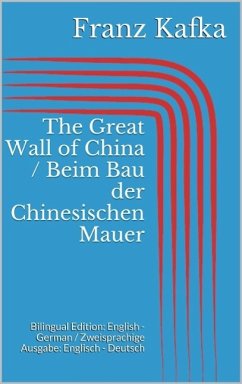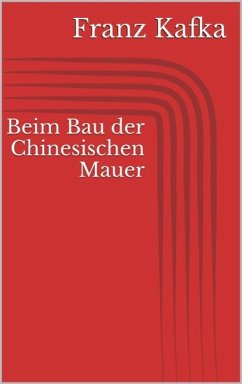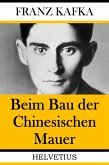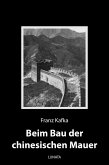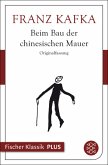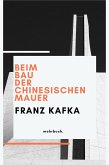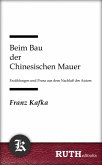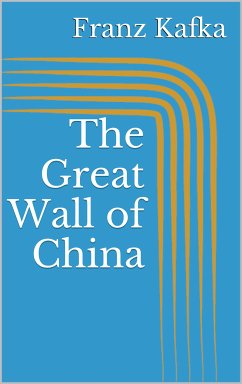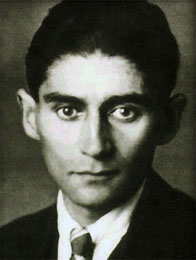This edition contains the English translation and the original text in German. "The Great Wall of China" ("Beim Bau der Chinesischen Mauer") is a short story written by Franz Kafka in 1917. It was not published until 1931, seven years after his death. Max Brod selected stories and published them in the collection "Beim Bau der Chinesischen Mauer". Contained within the story is a parable that was separately published as "A Message from the Emperor" ("Eine kaiserliche Botschaft") in 1919 in the collection "Ein Landarzt" ("A Country Doctor"). Some sub-themes of the story include why the wall was built piecemeal (in small sections in many different places), the relationship of the Chinese with the past and the present and the emperor's imperceptible presence. The story is told in first person by an older man from a southern province. The first English translation by Willa and Edwin Muir was published by Martin Secker in London in 1933. It appeared in "The Great Wall of China. Stories and Reflections" (New York: Schocken Books, 1946). "Beim Bau der Chinesischen Mauer" ist eine fragmentarische Erzählung von Franz Kafka, die 1917 entstand und postum veröffentlicht wurde. Sie schildert die Hinwendung des kollektiven Volkes an den Bau der Großen Mauer und deren Mystifizierung. Außerdem werden eine fast allwissende Führerschaft und ein sehr fernes Kaisertum skizziert. Eingebettet in diese Erzählung ist eine Parabel, die, als "Eine kaiserliche Botschaft" bezeichnet, eine eigenständige Geschichte darstellt und im Rahmen des Bandes Ein Landarzt veröffentlicht wurde. Unter dem Titel "Beim Bau der chinesischen Mauer" hat Kafkas Freund Max Brod 1931 den ersten Band von Kafkas Prosa aus dem Nachlass herausgegeben.
Dieser Download kann aus rechtlichen Gründen nur mit Rechnungsadresse in A, B, BG, CY, CZ, D, DK, EW, E, FIN, F, GR, H, IRL, I, LT, L, LR, M, NL, PL, P, R, S, SLO, SK ausgeliefert werden.

